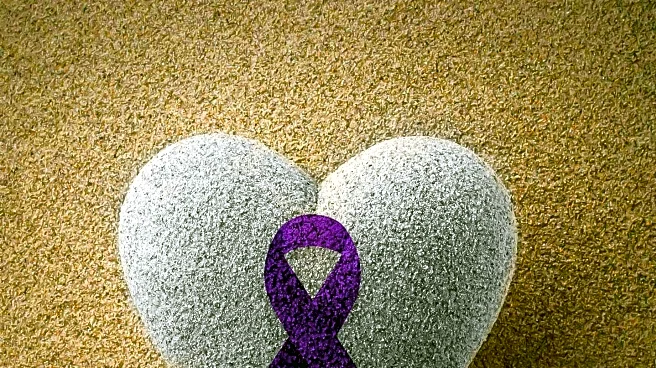What's Happening?
Emily Hausman, a former New York City resident, faced a series of life-altering challenges, including being laid off while pregnant and later being diagnosed with stage 4 metastatic melanoma. After moving
to Utah to live with her parents, Hausman shared her story on TikTok, which unexpectedly went viral. Her GoFundMe campaign, initially shared among friends and family, saw a significant increase in donations, surpassing $100,000. The outpouring of support from strangers online has been a source of emotional uplift for Hausman, who is currently undergoing immunotherapy while caring for her infant son.
Why It's Important?
Hausman's story highlights the power of social media and online communities in providing financial and emotional support during personal crises. The viral nature of her TikTok video underscores the potential for digital platforms to connect individuals in need with empathetic supporters willing to contribute financially. This phenomenon reflects a broader trend of crowdfunding for medical expenses, which has become a significant category on platforms like GoFundMe. The case also illustrates the societal reliance on community-driven support systems in the absence of comprehensive healthcare coverage for catastrophic illnesses.
What's Next?
As Hausman continues her treatment, the ongoing support from her online community may play a crucial role in her journey. The visibility of her story could inspire further donations and encourage others facing similar challenges to share their experiences. Additionally, the situation may prompt discussions on the need for systemic healthcare reforms to reduce the financial burden on individuals with severe medical conditions.
Beyond the Headlines
The ethical implications of relying on crowdfunding for medical expenses raise questions about equity and access to healthcare. While Hausman's story has a positive outcome in terms of support, it also highlights disparities in healthcare access and the potential for digital platforms to serve as a stopgap rather than a solution. The emotional and psychological impact of sharing personal health struggles online is another dimension, as individuals navigate privacy concerns and the potential for public scrutiny.










